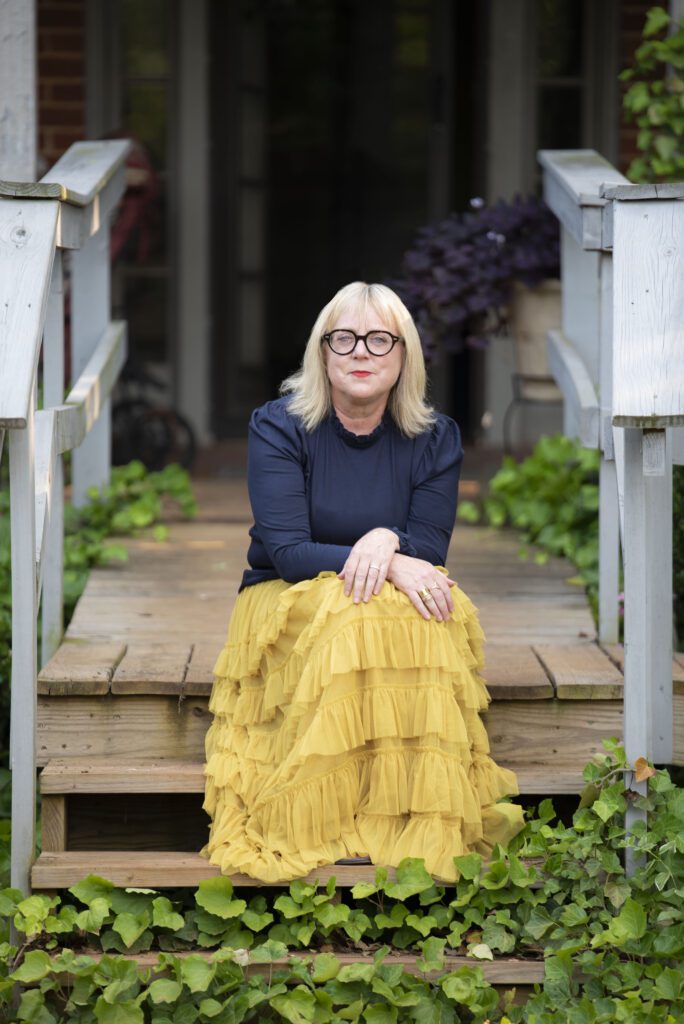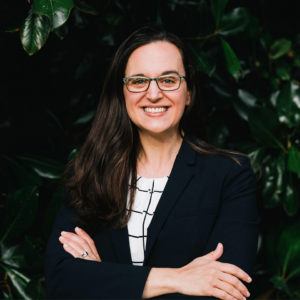Can Reading Fiction Be Inner Work?
What books have most shaped the way you lead? When I think about this question, my mind immediately goes to books on business and leadership. Jim Collins’s Good to Great and Max De Pree’s Leadership Is An Art would be near the top. Upon further reflection, I might also include Stephen Seamands’s Ministry in the Image of God and Daring Greatly by Brené Brown. I’m less apt to list works of fiction, though. Why is that? Could it be because I don’t fully believe in the power of fiction to form me as a leader?
Recently I told a therapist about the types of books I like to read to unwind from a stressful day, and she called them candy. At first, I was offended. Hello! At least I was reading instead of binge-watching reality TV or mindlessly scrolling through reels on Instagram. She was right though. I had been choosing books that required very little brainpower and gave me a steady diet of un-put-down-able plots, bold female lead characters, and warm-fuzzy feelings. I expected little else from these books—especially leadership formation. Who has the energy for that after a long or difficult day?
But fiction can form us even when we least expect it. Last summer, I selected four novels for my summer reading. And one of them stood out: Matt Haig’s New York Times bestselling The Midnight Library. I loved the ingenuity in storytelling and Haig’s perspective on time. But that book messed with me—in a good way. It stirred up difficult thoughts and feelings as I wrestled with one of the key themes: regret. That book prompted me to do some inner work. But why? I had some inklings based on my understanding of narrative and story, but I wanted to check in with an expert. So, I interviewed Karen Swallow Prior, a literature scholar who wrote the book On Reading Well: Finding the Good Life through Great Books.
How Literature Forms Us
Prior believes literature can form us in a few ways. First, literature can form our character, emotions, and imagination. In On Reading Well, she writes, “Literary characters have a lot to teach us about character.” Reflecting on how literature had formed her, Prior told me that reading not only helped her learn about other times, places, and perspectives but also formed her character. Reading helped her discover “what I’m like and what I’m not like by living vicariously through the characters, judging their choices, anticipating the outcome of their choices, and being right or wrong.” She added that reading literature can help us develop our discernment. Even reflecting on which characters we identify with and why can shape us. Charlotte Brontë’s Jane Eyre has perhaps shaped Prior the most.
Second, literature can shape our emotions. Prior pointed to Aristotle’s teaching that literature helps us train our emotions because we experience them vicariously in a fictional world. We also have to pay attention to our emotions while reading. We have to pause long enough to reflect on our affective response to a book. What’s happening inside us? What do we feel in our bodies? What emotions are bubbling up?
Third, literature can cultivate our imaginations. The fictional world, or the world described to us by a poet, can open our minds to new possibilities. Prior writes in On Reading Well, “Visions of the good life presented in the world’s best literature can be agents for cultivating knowledge of and desire for the good and, unlike visions sustained by sentimentality of self-deception, the true.” A well-written passage can prick our pain points and stir our deepest longings for what could be.
A well-written passage can prick our pain points and stir our deepest longings for what could be.
The world needs more leaders who have well-formed character, emotional intelligence, and vibrant imaginations. To be sure, there are myriad ways to develop each of these qualities, but what if we could grow in all three areas at the same time by picking up a good book?
The Type of Fiction that Forms Us
Not all works of fiction form us in the same way. Just as foods vary in their nutritive value, so do books. During our interview, Prior distinguished literary from commercial fiction. Commercial fiction, she says, tells a story; it’s driven by the plot. Literary fiction also has a plot and story, but it tries to use words artistically. It’s the artistry that makes the difference. In another article, Prior highlights the artistic value of literature: “Literary writing is different from everyday writing in the way that a Van Gogh painting in a frame differs from a coat of Sherwin Williams painted on the wall.” When I brought up The Midnight Library, she said it’s “a perfect example of a book that’s right in the middle.” But for her, it didn’t leave the same impression as George Eliot’s Middlemarch, a work of literary fiction that she could read and re-read, catching something new every time because of the rich language.
Prior told me that cognitive science explains the power of how literary fiction forms us. When we’re reading literary fiction, “we’re using the same parts of our brain that we have to use when we’re interacting with real people—like having a conversation with someone—and we’re trying to interpret what they’re saying, what they mean, what the outcome of this conversation is going to be. So it replicates our real life.” What we read matters.
And while Prior encourages us to read something we enjoy, she notes that sometimes we need to stretch ourselves. She likened reading to physical exercise. Taking a walk every day is good, but, she says, “Maybe we should do something more challenging now and then, too, to work some different muscles and exert ourselves a little bit more in a different way. The same is true of reading.” We need to read some books we know to be good literature because they get us out of our comfort zone. Leaning into a time, place, topic, or perspective that’s new for us can increase our understanding and empathy.
Reading for Formation
At the outset of our interview, Prior felt it important for us to know the difference between reading for information and reading for formation. I don’t know about you, but the vast majority of my daily reading is for information. My TBR (to-be-read) stack at work contains two books on digital marketing, two books on leadership, and one book on joy. Between my side table and nightstand, I have a novel, a book on burnout, a book on boundaries, and one on prayer. I’ve selected some of them with inner work in mind. But most are for information only. And the novel? Harry Potter and the Sorcerer’s Stone is my book candy right now because The Seven Husbands of Evelyn Hugo got recalled from the library before I could finish it.
Drawing on C.S. Lewis, Prior encourages us to read literature for formation by taking a receiving posture when we open the book. We shouldn’t read something just to use it—that’s too utilitarian for a work of art. Instead, we should read with openness and curiosity. Prior said we should treat literary works like we do people and just be with them—listen to them. “We don’t know how that person is going to change us. We know that being in a relationship with someone will change us over time. But it’s not something we can plan or expect. But we can still choose well because we know that we’re going to be formed.” A good book can have a similar effect on us.
We shouldn’t read something just to use it—that’s too utilitarian for a work of art. Instead, we should read with openness and curiosity. Prior said we should treat literary works like we do people and just be with them—listen to them.
Choosing What to Read
So where do we start? If we haven’t picked up a piece of literature since college, what should we read? Prior gave a few recommendations for where to start.
- Jane Eyre by Charlotte Bronte
- Great Expectations by Charles Dickens
- East of Eden by John Steinbeck
Prior discusses a different work of literature in each chapter of On Reading Well. She’s also developed a series called Read and Reflect with the Classics in which she guides readers through works of literary fiction including Jane Eyre, Tess of the d’Urbervilles, Frankenstein, The Scarlett Letter, Heart of Darkness, and Sense and Sensibility. If you find yourself in an airport bookstore with little time to choose something to read before your flight, you could skip the bestsellers and new releases and head straight to the classics to find a good book.
After I interviewed Karen, I felt inspired to mix up my TBR pile. I read Jane Eyre five years ago, and I think I’d like to read it again soon along with a few other classics I see looking lonely on my shelf. Honestly, I’m a little nervous about tackling a work of literary fiction in this season of life. It seems daunting, and I’m sure it will take me weeks to finish a book. Still, I’m excited about what I’ll learn and about the potential of these books to form me to live, work, and lead better.
Will you add some literary fiction to your list? If so, let me know in the comments what you plan to read.

About Karen Swallow Prior
Karen Swallow Prior earned her PhD in English at the State University of New York at Buffalo. She is a popular writer and speaker, as well as a columnist for Religion News Service. Her writing has appeared in The New York Times, The Atlantic, Vox, The Washington Post, Christianity Today, and many other places. Her most recent book is The Evangelical Imagination: How Stories, Images, and Metaphors Created a Culture in Crisis (Brazos, 2023).

Meryl Herr
Director of Research and Resources
Dr. Meryl Herr is the Director of Research and Resources at the Max De Pree Center for Leadership where she designs and conducts research studies that add to the understanding of what helps marketplace leaders flourish. She also oversees the team’s efforts to convert research findings into r...


